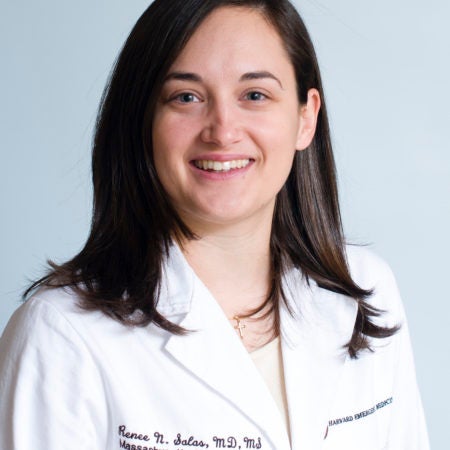Dr. Renee N. Salas is Affiliated Faculty at the Center for Climate, Health, and the Global Environment at Harvard T.H. Chan School of Public Health and a previous Yerby Fellow. She is also Affiliated Faculty and previous Burke Fellow at the Harvard Global Health Institute and Affiliated Faculty at the Department of Global Health and Social Medicine at Harvard Medical School. She is an emergency medicine physician in the Department of Emergency Medicine at Massachusetts General Hospital and Harvard Medical School.
Dr. Salas leads endeavors with the world’s top general medical journals. She spearheads The New England Journal of Medicine (NEJM) Group’s Climate Crisis and Clinical Practice Initiative and serves as a guest editor for the NEJM Group series entitled “Fossil-fuel Pollution and Climate Change.” She was the lead author of the cornerstone Interactive Perspective for The New England Journal of Medicine that launched the journal’s climate crisis and health topic page and continues to contribute content. Dr. Salas is also a member of the global Lancet Countdown on Health and Climate Change, serving as the lead author of the Lancet Countdown Brief for the United States between 2018 to 2021 – moving to senior author in 2022 – and founded and leads its U.S. Working Group of over 80 U.S. organizations.
Dr. Salas was elected to the National Academy of Medicine (NAM) in 2021 for her work on climate change and health, an honorific society that is considered one of the highest honors in the field of health and medicine. She served on the original planning committee for the NAM’s Grand Challenge on Health and Climate Change and continues to serve on committees related to this work. She has testified before Congress for the full House Committee on Oversight and Reform on how climate change is harming health.
Dr. Salas lectures and serves on committees at the nexus of climate and health internationally and nationally, advises and publishes in high-impact journals, and her work and expertise are regularly featured in mainstream media outlets like the New York Times, NPR, Time, and the Associated Press. She engages in research on how climate change is impacting the healthcare system and developing evidence-based adaptation. She also strives to engage across a diverse range of sectors, and frequently speaks at high-level engagements. Her work also spans disciplines, such as collaborations on Amicus Briefs for Juliana v. United States and a response letter to the Environmental Protection Agency’s proposed transparency rule.
She is the founder and past Chair of the Society of Academic Emergency Medicine (SAEM) Climate Change and Health Interest Group and founded and led their first pre-conference workshop on the topic. She gave the first national emergency medicine conference presentations on climate change and health at the SAEM and American College of Emergency Physicians annual meetings.
Dr. Salas has been the recipient of a range of honors and awards, such as the national SAEM Public Health Leadership Award and the Network for Excellent in Health Innovation Innovator in Health Award. She is also the recipient of the Clinician-Teacher Development Award from Massachusetts General Hospital and the Shore Fellowship from Harvard Medical School.
Her Doctor of Medicine is from the innovative five-year medical school program to train physician-investigators at the Cleveland Clinic Lerner College of Medicine with a Master of Science in Clinical Research from the Case Western Reserve University School of Medicine. Both institutions later awarded her with Early Career Leadership Awards for her outstanding career achievements. Her Master of Public Health is from Harvard T.H. Chan School of Public Health with a concentration in environmental health. Dr. Salas received her undergraduate degree from Saint Mary’s College, which later recognized her as a prestigious Shannon Scholar for exceptional alumna.
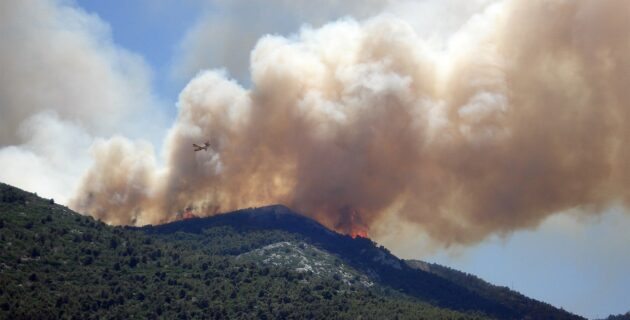
Health risks linked to climate change are getting worse, experts warn
The Lancet Countdown shines a light on problems and solutions.

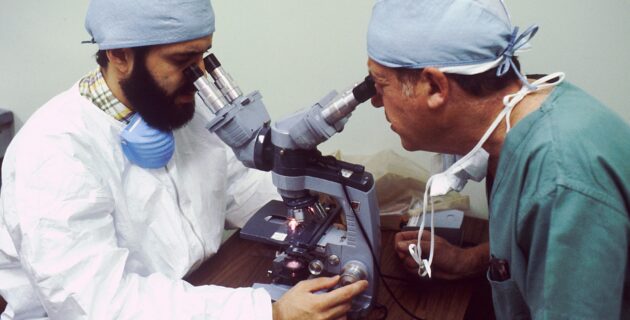
Federal investments in climate change and health research are inadequate says Harvard analysis
Critical knowledge gaps hinder an evidence-based response and are perpetuated by scarce federal research funds.
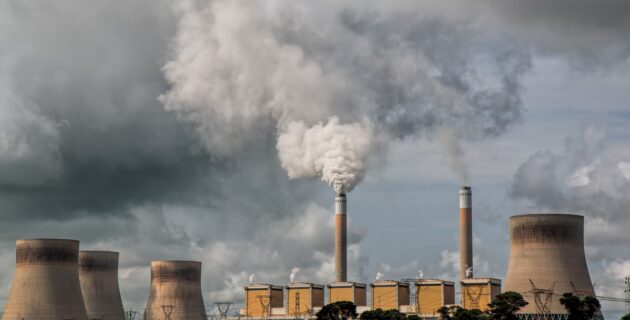
Doctors say ‘fossil fuel addiction’ kills, starves millions
“This isn’t a rare cancer that we don’t have a treatment for. We know the treatment we need. We just need the willpower from all of us and our leaders to make it happen," says our Yerby Fellow Dr. Renee Salas.

The 2022 Lancet Countdown on Health and Climate Change: Policy Brief for the U.S.
Climate change puts everyone at risk, but policy decisions and industry actions make some communities more vulnerable to the harms of climate change.
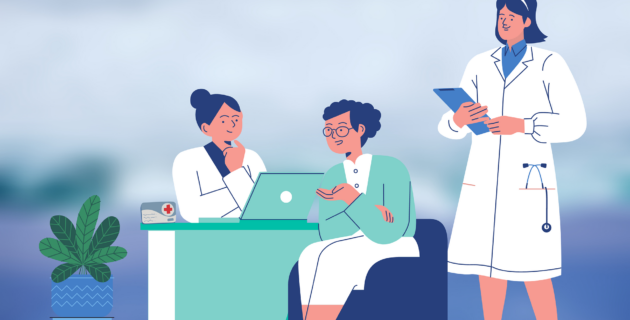
Communicating Statistics on the Health Effects of Climate Change
Health professionals need to communicate the health and equity implications of climate change effectively to protect health and motivate action.

Fossil-Fuel Pollution and Climate Change - A New NEJM Group Series
A monthly series in NEJM will call attention to rising global greenhouse gas emissions that harm our health.
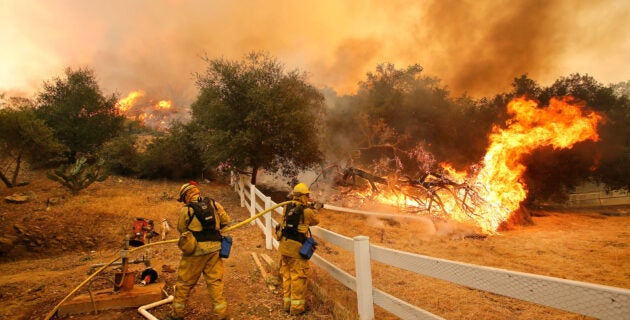
2021 Lancet Countdown on Health and Climate Change: U.S. Policy Report
Our response to climate change must prioritize and optimize health and equity. We can improve health through climate actions that reduce our use of fossil fuels.

Renee Salas, Howie Frumkin elected to the National Academy of Medicine for climate work
Our Fellow and Board Member have been elected to the National Academy of Medicine for their commitment to raising climate change issues within the medical community.
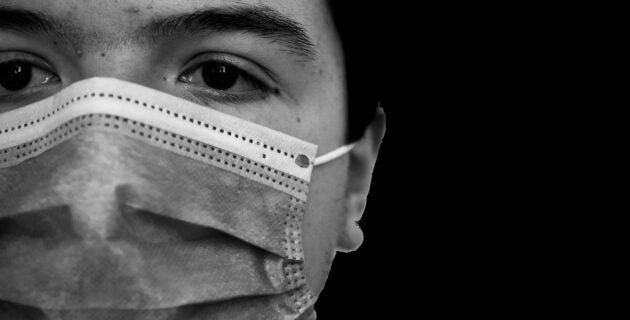
Pandemic lessons can help in fight against climate change
Climate change causes new health problems, worsens existing health problems, and affects healthcare delivery. But it is not an equal opportunity harmer.

